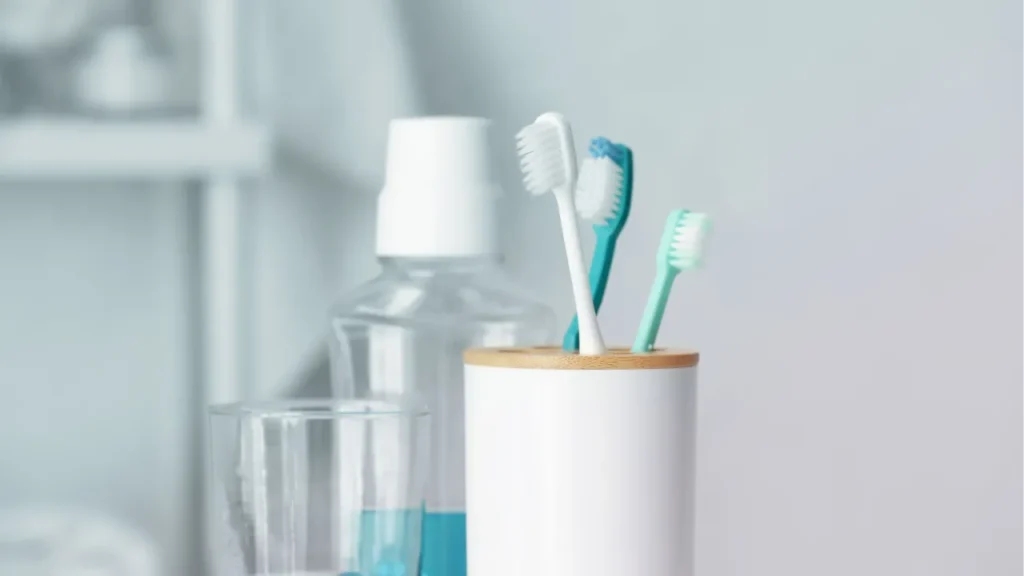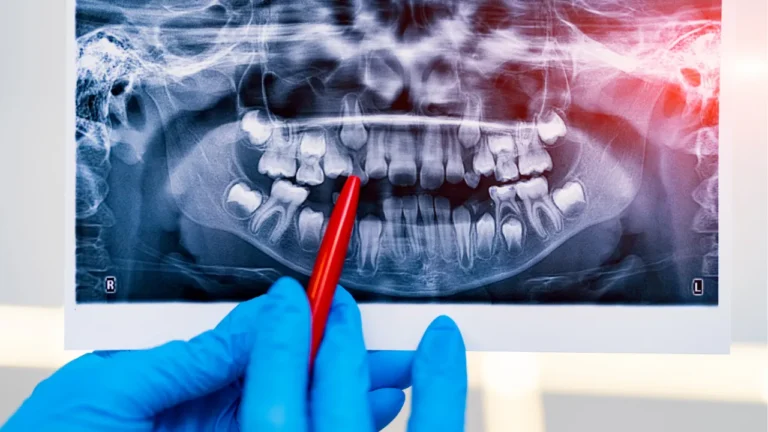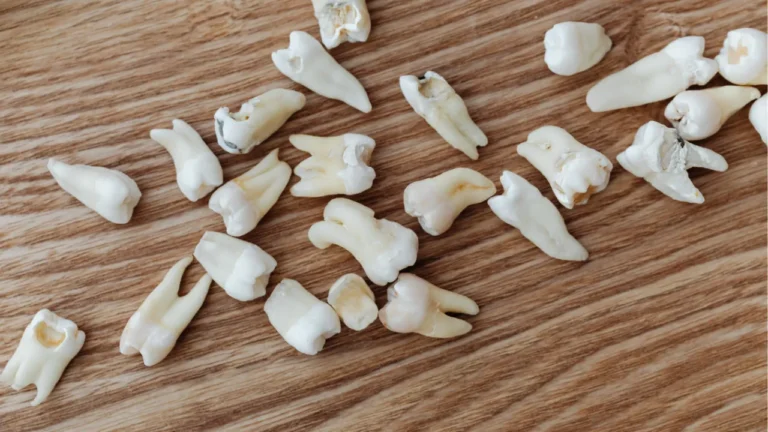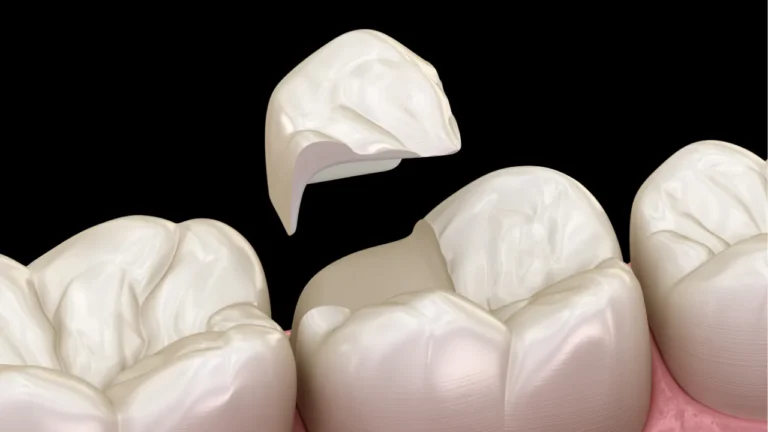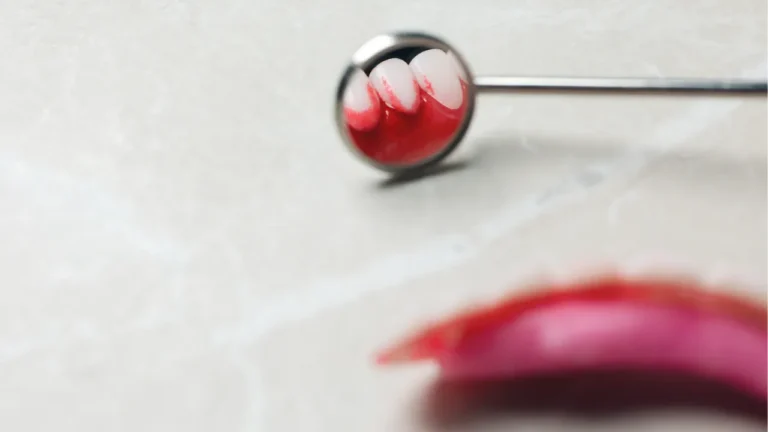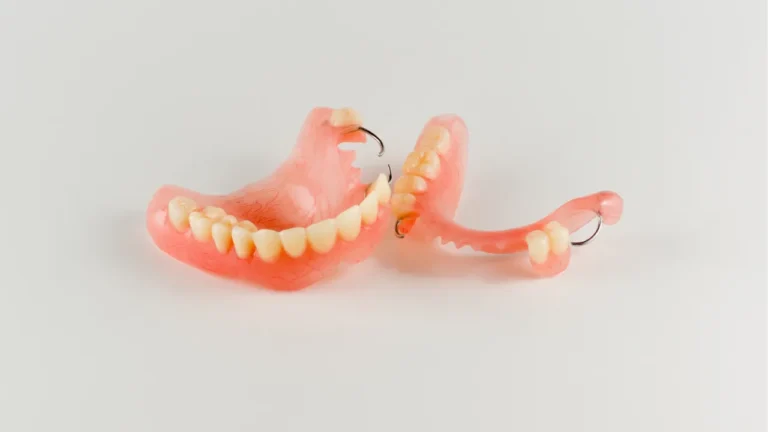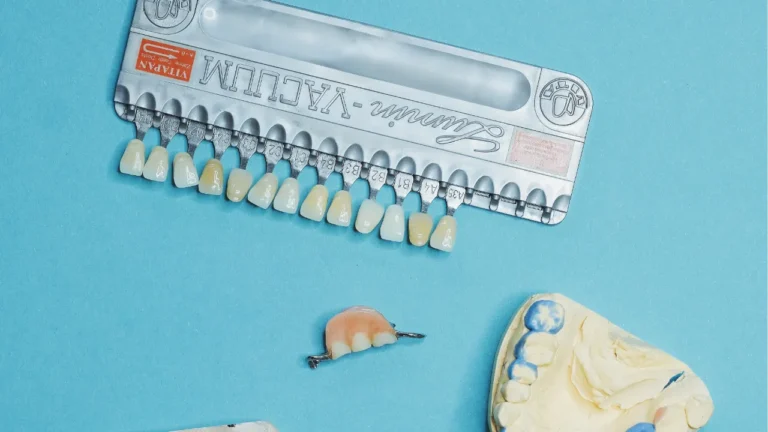Oral thrush is a fungal infection caused by an overgrowth of Candida yeast, and it can be prevented with good oral hygiene, a balanced diet, and by managing risk factors like dry mouth or antibiotic use.
Common symptoms include white patches on the tongue or inner cheeks, a sore mouth, and difficulty swallowing.
If you suspect oral thrush, prompt treatment with antifungal medication and proper care can help clear the infection and prevent it from returning.
Short Summary
- Oral thrush = fungal infection caused by Candida albicans overgrowth.
- Main symptoms: white patches in the mouth, soreness, and swallowing difficulty.
- Risk factors: weak immunity, antibiotics, dry mouth, dentures, smoking, diabetes, and hormonal changes.
- Prevention: good oral hygiene, denture care, control health conditions, avoid smoking/alcohol, stay hydrated.
- Treatment: antifungal medications + addressing underlying causes.
What Causes Oral Thrush?
Several factors can contribute to the overgrowth of Candida albicans, including:
- Weakened immune system – Individuals with conditions like HIV/AIDS, diabetes, or those undergoing chemotherapy are at a higher risk.
- Antibiotic use – Antibiotics can kill beneficial bacteria in the mouth, allowing yeast to overgrow.
- Dry mouth (Xerostomia) – A lack of saliva can create an environment where yeast thrives.
- Poor oral hygiene – Not brushing and flossing regularly can contribute to fungal infections.
- Denture use – Ill-fitting or unclean dentures can promote yeast growth.
- Smoking – Tobacco use weakens the immune response in the mouth.
- Diabetes – High blood sugar levels can encourage yeast growth.
- Hormonal changes – Pregnancy, birth control pills, and hormonal imbalances can increase susceptibility.
Symptoms of Oral Thrush
Oral thrush often presents with the following symptoms:
- White, creamy lesions on the tongue, inner cheeks, roof of the mouth, and throat
- Redness and soreness in the mouth
- A cotton-like sensation or dry feeling in the mouth
- Difficulty swallowing or tasting food
- Cracks and redness at the corners of the mouth (angular cheilitis)
- Slight bleeding if the white patches are scraped off
How to Prevent Oral Thrush
Preventing oral thrush involves maintaining good oral hygiene and reducing risk factors. Here are some effective prevention tips:
1. Practice Good Oral Hygiene
- Brush your teeth twice a day with fluoride toothpaste.
- Floss daily to remove plaque and food particles.
- Use an antifungal mouthwash if recommended by your dentist.
2. Maintain Proper Denture Care
- Remove and clean dentures daily with a denture cleaner.
- Make sure dentures fit properly to avoid irritation.
- Avoid sleeping with dentures in your mouth.
3. Control Underlying Health Conditions
- If you have diabetes, keep your blood sugar levels stable.
- Manage conditions that weaken the immune system with proper medical care.
4. Avoid Smoking and Excessive Alcohol Consumption
- Smoking weakens your mouth’s natural defense against infections.
- Alcohol can contribute to dry mouth, increasing the risk of thrush.
5. Stay Hydrated
- Drink plenty of water to promote saliva production.
- If you experience dry mouth, consider using saliva substitutes or chewing sugar-free gum.
6. Use Antibiotics and Steroids with Caution
- If prescribed antibiotics, take probiotics or eat yogurt with live cultures to help maintain healthy bacteria levels.
- If using steroid inhalers, rinse your mouth with water after each use to prevent yeast buildup.
Treatment Options for Oral Thrush
If oral thrush develops, treatment typically involves antifungal medications.
The right treatment depends on the severity of the infection and your overall health.
1. Antifungal Medications
Your doctor or dentist may prescribe:
- Antifungal mouth rinses (Nystatin)
- Oral antifungal tablets or lozenges (Clotrimazole, Fluconazole)
- Topical antifungal creams for cracked corners of the mouth
2. Home Remedies to Support Treatment
While medical treatment is necessary for severe cases, some home remedies can help:
- Saltwater rinses – Mix ½ teaspoon of salt in warm water and rinse your mouth several times a day.
- Probiotic foods – Eat yogurt with live cultures or take probiotic supplements to restore good bacteria.
- Baking soda rinse – Mix ½ teaspoon of baking soda in water and rinse your mouth to reduce acidity and discourage yeast growth.
- Coconut oil pulling – Swishing coconut oil in the mouth may have antifungal properties, but consult your dentist before trying.
3. Addressing Underlying Causes
- If you have dentures, clean and disinfect them properly.
- If you have diabetes, keep blood sugar under control.
- If dry mouth is an issue, use moisturizing mouth sprays or chew sugar-free gum.
When to See a Doctor
Seek professional help if:
- Symptoms persist for more than two weeks despite home care.
- The infection spreads to your throat or other areas of the body.
- You experience difficulty swallowing or breathing.
- You have a weakened immune system, and the infection worsens.
Final Thoughts
Oral thrush can be uncomfortable, but it is treatable with the right approach.
By practicing good oral hygiene, managing risk factors, and seeking medical treatment when necessary, you can prevent and control oral thrush effectively.
At Every Smile Dentistry, we are committed to helping you maintain a healthy mouth.
If you suspect you have oral thrush or need guidance on prevention, schedule an appointment today for expert care.

